How Loneliness Impacts Mental Health
Loneliness isn’t just about being physically alone — it’s about feeling disconnected, unseen, or unsupported. You can be surrounded by people and still feel profoundly lonely. At times, loneliness can feel like a quiet ache, and at others, it can become overwhelming and all-consuming.
Loneliness affects everyone differently, but over time it can take a real toll on mental health, contributing to:
-
Depression and low mood
-
Anxiety and social withdrawal
-
Sleep problems and fatigue
-
Reduced self-esteem and confidence
-
Thoughts of hopelessness or suicide
The experience of loneliness can also create a cycle — feeling lonely can make it harder to reach out or engage with others, which in turn deepens feelings of isolation.
As described by Loneliness Awareness Week:
“Loneliness is a normal human emotion – we’re hardwired to need social connection. But when loneliness is chronic, it can affect our mental and physical health and our ability to feel we belong.”
It’s important to remember:
Loneliness is a feeling, not a personal failing. Support is available, and connections can be rebuilt.
Resources to Help You Understand and Manage Loneliness
The Toolkit | Loneliness Awareness Week
The Loneliness Awareness Week Toolkit offers practical, gentle resources for individuals, organisations, and communities to help understand and address loneliness. Whether you’re feeling lonely yourself, or supporting someone who is, this toolkit offers:
-
Guides to opening up conversations
-
Tools to build confidence in reaching out
-
Resources for schools, workplaces, and communities
-
Access the Toolkit: The Toolkit | Loneliness Awareness Week
Understanding Loneliness | Loneliness Awareness Week
This resource helps to explore what loneliness really is, why it happens, and how it affects us. It highlights that:
-
Loneliness can happen at any age and stage of life
-
Certain life events (bereavement, moving home, relationship breakdown, or health issues) can trigger loneliness
-
Feeling lonely is common, but there are ways to manage it and reconnect
-
Learn more: Understanding Loneliness | Loneliness Awareness Week
Guide to Loneliness | Loneliness Awareness Week
This compassionate guide offers simple, actionable steps to help break the cycle of loneliness. It includes:
-
Practical tips for managing loneliness day-to-day
-
Encouragement to take small, gentle steps towards connection
-
Advice on looking after your mental wellbeing while feeling lonely
-
Access the Guide: Guide to Loneliness | Loneliness Awareness Week
Organisations That Can Help
Mind
Mind offers advice and support for anyone struggling with loneliness and its impact on mental health.
-
Website: www.mind.org.uk
-
Infoline: 0300 123 3393
Samaritans
If loneliness is making you feel overwhelmed or suicidal, Samaritans offer 24/7 emotional support.
-
Website: www.samaritans.org
-
Call free: 116 123
The Silver Line (for older people)
Free confidential helpline providing friendship and advice for people aged 55 and over.
-
Website: www.thesilverline.org.uk
-
Call free: 0800 4 70 80 90
British Red Cross – Tackling Loneliness
Support services and local projects to help people reconnect with their communities.

